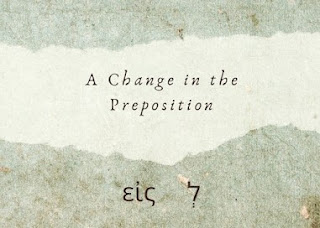Someone Else's Pew
Have you ever visited a church for the first time and felt that you might be sitting in someone else’s pew? You are at a church for the first time and you sit in the pew belonging to little Miss Willie Mae. Hopefully she is kind and gracious enough to allow you to do that or maybe share her pew with you that Sunday.
When my husband and I started our fulltime RV life October
2022, I wanted to go to as many churches as possible. A different one every
Sunday. This is relatively easy, as we are in a different city each week. As we
walk into a new church each week, I wonder where we should sit and hope that it
is not in someone else’s seat. While I am sure we have, thankfully we have not
gotten any “stare-downs” because we did not belong in that pew. In fact,
all the churches we have attended have been wonderful in their own way. The
people and the ministers have been welcoming, giving us the sense that, for the
short time we were with them, we did belong.
We all want that sense of belonging. As we grow up, we
belong to our mishpaha (Hebrew word for family), our church, our school,
or a group of friends. Belonging gives us security and comfort. When we move into
adulthood what we belong to changes. We may move away from our hometown. And
while we may always belong to our mishpaha, we may not always belong to
the place we grew up, the church we grew up in, or our circle of friends.
Belonging changes.
We love the story of Ruth, don’t we? I mean, she is the
great, great, great….grandmother of our elder brother Jesus. But did Ruth
belong where she was? She was a foreigner, from an idolatrous nation. She definitely
did not belong in the land and amongst the Israelites. Ruth could have returned
to her mishpaha where she belonged, but she chose to be where she did
not belong for the sake of someone else, Naomi. Ruth was courageous enough to
go where she did not belong and ask if she could glean in Boaz’s field in order
to feed herself and Naomi.
She also went where she did not belong in order to help
restore Naomi, who had fallen into deep bitterness. You see, Naomi belonged in
Bethlehem and with her people, as a child of God. And it was Ruth who reminded
Naomi of this belonging, even though by doing this she put her own self at
risk.
As part of our fulltime RV life travels, we spent a good
amount of time traveling along the Texas/Mexico border. As we traveled, I
thought about those who were on the other side of the wall. Those who have been
told they do not belong in our country. When I hear people being told they do
not belong in our country, this makes me think I am hearing, “you are sitting
in my pew” or “we do not want you in our pew.” I think
about Ruth and wonder what the Israelite women thought and said about her
coming into their land.
Unfortunately, Christians are just as divided on the issue
of immigration as our government is. We say that you must be a certain way,
look a certain way, and believe exactly as those of us who already belong, if
you want to join. However, the Bible is filled with stories of immigration, accepting others who are different from us, and encouraging belonging in the mishpaha
of God.
I do not belong to the church or denomination I grew up in,
but I remember studying the Heidelberg Catechism inside and out. The first
question and answer have resonated with me when I think about belonging. “What
is your only comfort in life and death? That I am not my own, but belong
body and soul, both in life and in death, to my faithful Savior Jesus Christ.” Whenever
you have that feeling that you do not belong, remember that you do belong to
God. You belong to God, like Naomi did. You belong to God as a child of God,
like Ruth became.
When you hear about the immigrants at the border seeking
asylum, remember Ruth and try to think about the courage it took for them to
leave where they belonged in search of a better life for themselves and their mishpaha.
Remember the stories in the Bible that encourage us to accept others and
welcome them.
And when you come to church and someone is in your pew be
gracious enough to let them sit there. Treat them as if they belong in the
church, just as much as you do. Someday when I am sitting in my pew, I
will welcome others when they sit there. But for now, I am happy sitting in
someone else’s pew.




Comments
Post a Comment